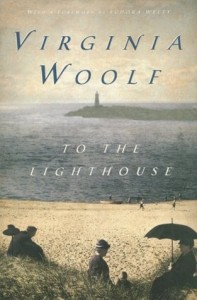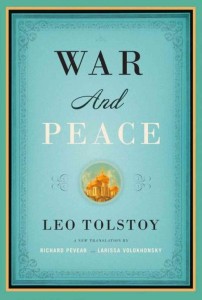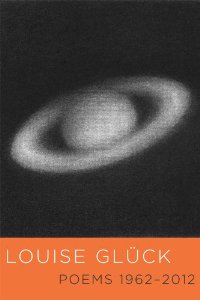By Katherine Indermaur, Colorado Review Assistant Managing Editor
It’s a new year, so I’ve resolved to take a look at all those books I’ve been meaning to read—or lying to my friends about having read—for years. We all keep our own mental lists of books that we are embarrassed to admit we haven’t yet read. Below are some of the books (in no particular order) that I plan to read, in hopes that they serve to embolden you in making headway on your lists. And yes, I have somehow managed to avoid these well-renowned classics, even as an MFA student.
1. The Grapes of Wrath by John Steinbeck, 1939: I’ve never even seen the movie, but I know this to be the quintessential American Great Depression novel, especially since it won the Pulitzer Prize in 1940.  It just so happens I was never assigned it in school which, I suppose, is sort of the case with all these titles.
It just so happens I was never assigned it in school which, I suppose, is sort of the case with all these titles.
2. To the Lighthouse by Virginia Woolf, 1927: There are numerous parties I’ve attended at which I nodded vaguely at a fellow writer whom I admire while they espouse the awe-inspiring qualities of Virginia Woolf. I have a dusty, used copy of To the Lighthouse and The Waves in a single volume on my bookshelf, yet to be opened—at least, by me. But this is what new years are for, yes?
3. Angle of Repose by Wallace Stegner, 1971: Perhaps less well-known than the classics previously mentioned, this title was nonetheless awarded the Pulitzer in 1972, and is on practically every list of quintessential literature of the American West. As a student at Colorado State University, it sort of feels like my duty to read this book. If only I didn’t feel so daunted by its 672 pages.
4. War and Peace by Leo Tolstoy, 1869 in Russian/1899 in English: If you thought the 672 of the previous title sounded intimidating, then hold your breath—because this one spans 1,296  pages. It’s no wonder so many people steer clear of War and Peace. Though its length certainly lends to braggarts claiming it as their favorite, perhaps I should take those opinions more seriously since Time ranks it as the third greatest book of all time, behind another Leo Tolstoy novel Anna Karenina (which I have read, thank you very much) and Gustave Flaubert’s Madame Bovary (nope).
pages. It’s no wonder so many people steer clear of War and Peace. Though its length certainly lends to braggarts claiming it as their favorite, perhaps I should take those opinions more seriously since Time ranks it as the third greatest book of all time, behind another Leo Tolstoy novel Anna Karenina (which I have read, thank you very much) and Gustave Flaubert’s Madame Bovary (nope).
5. Ulysses by James Joyce, 1922: Yet another massive masterpiece, this one clocks in at 736 pages. I hope this isn’t simply becoming a list of books-that-were-too-long-for-me-to-read-because-I’m-a-poet, because I assure you I’m no stranger to the long novel. As a rather bratty and nerdy sixth grader, I read the unabridged Gone with the Wind instead of attending science class—a choice blessed by my science teacher, of course. Anyway, this book happens to be notoriously dense as well, though I’ve enjoyed Joyce’s short stories, so there’s hope yet.
 6. Poems 1962-2012 by Louise Glück, 2013: Both to break from the long novel trend (though this volume nevertheless contains 656 pages) I’ve established and to give a nod to poetry, I’ve included this collection, which I’m sure lives up to everything good I’ve heard about Louise Glück. My copy has traveled in multiple suitcases between multiple bookshelves with me, and I have yet to read it as a whole. It usually takes me a considerable amount of time to read an entire work of collected poems like this (it took me a little over a year to finish Jack Gilbert’s Collected Poems), so I won’t judge myself too harshly here. It takes time to let such marvelous poetry percolate!
6. Poems 1962-2012 by Louise Glück, 2013: Both to break from the long novel trend (though this volume nevertheless contains 656 pages) I’ve established and to give a nod to poetry, I’ve included this collection, which I’m sure lives up to everything good I’ve heard about Louise Glück. My copy has traveled in multiple suitcases between multiple bookshelves with me, and I have yet to read it as a whole. It usually takes me a considerable amount of time to read an entire work of collected poems like this (it took me a little over a year to finish Jack Gilbert’s Collected Poems), so I won’t judge myself too harshly here. It takes time to let such marvelous poetry percolate!
Now that I’ve thoroughly embarrassed myself, I’m curious as to what your lists contain, and if we have any overlap. No need to share your shame with the world as I have, but rather than continuing to stare hopelessly at those unread volumes on your bookshelves, I encourage you to seize the year and open one now. Happy New Year!